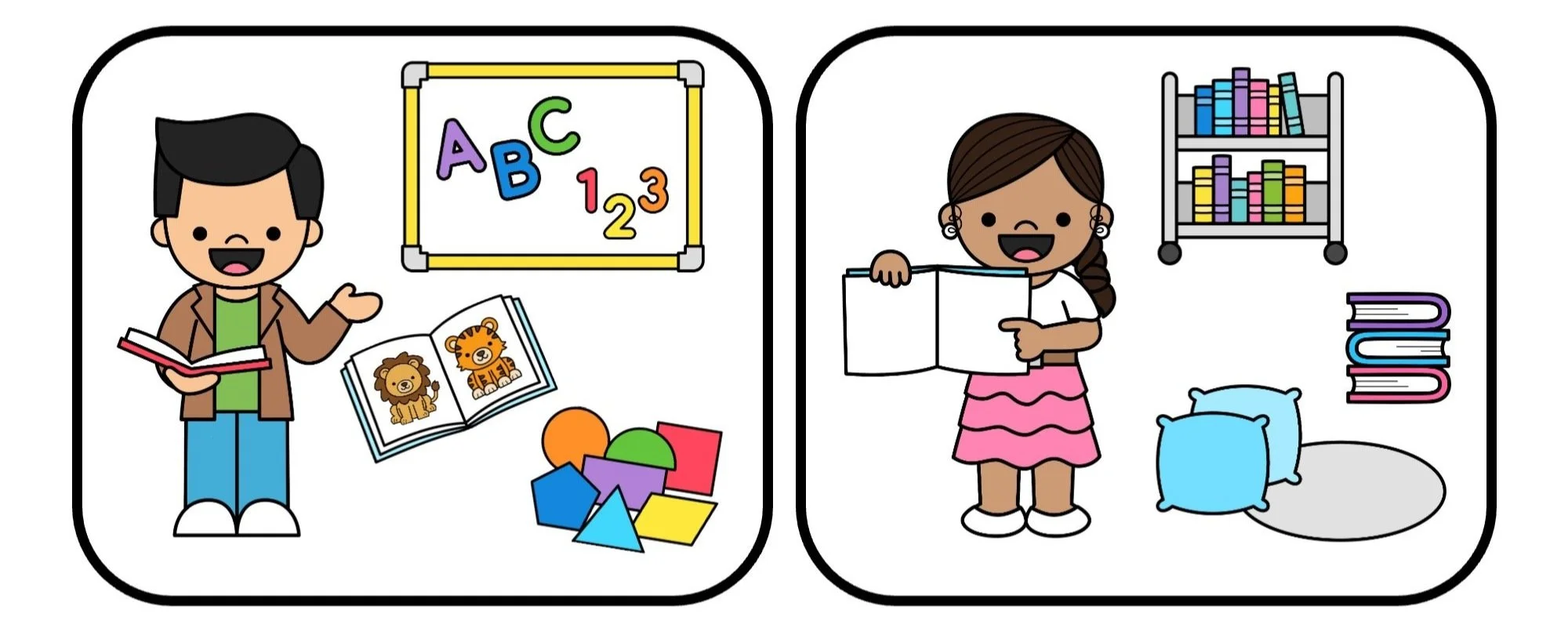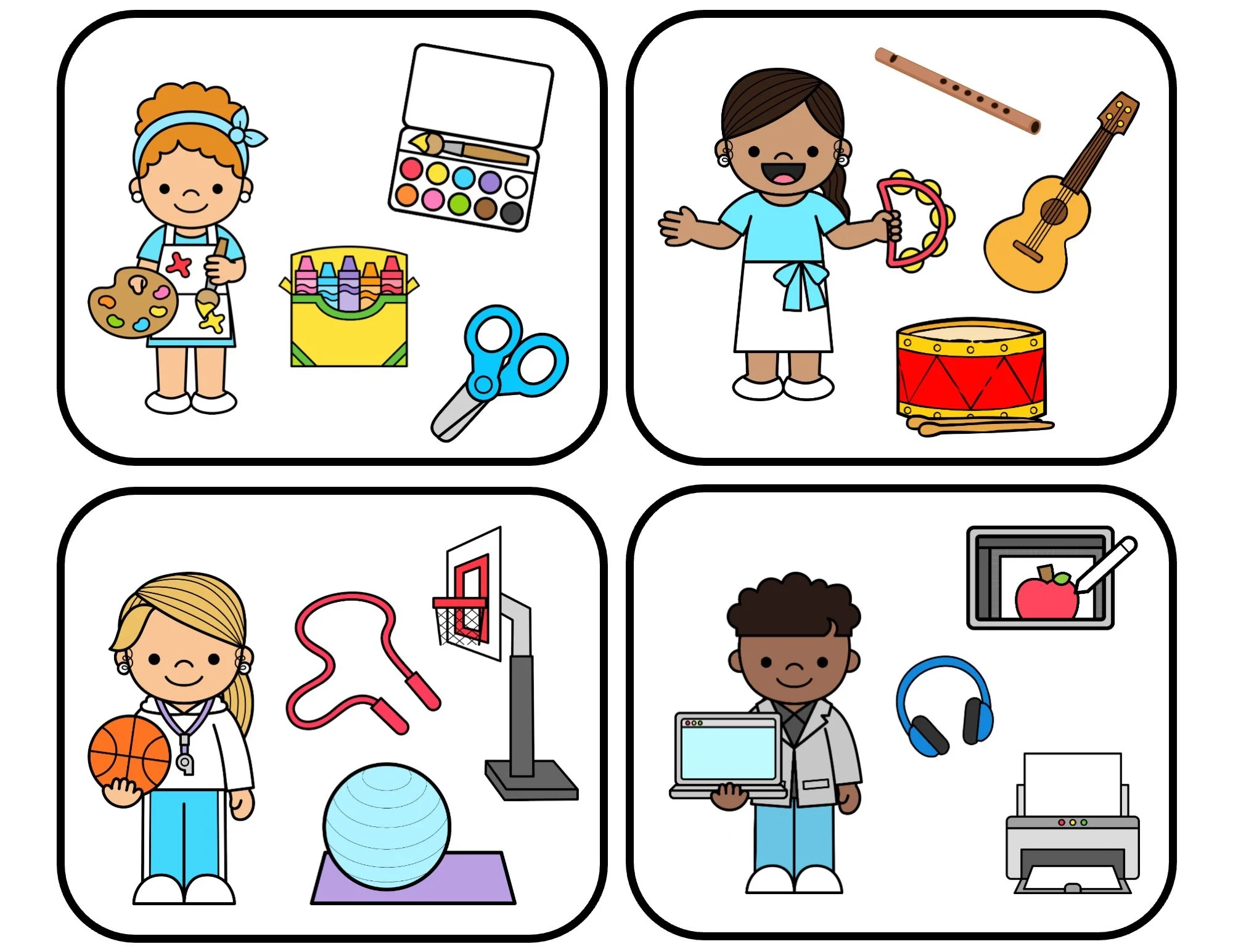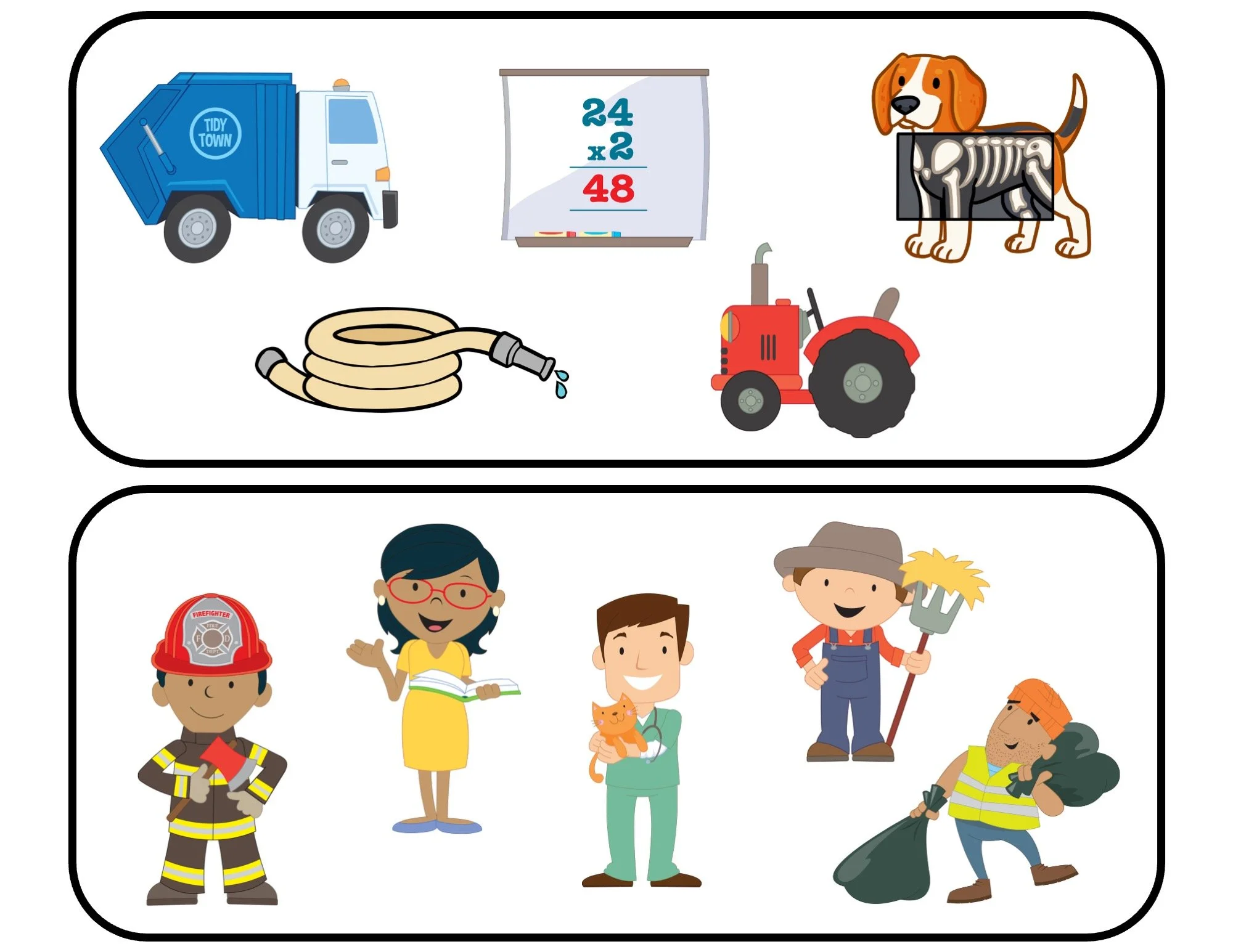Meet the Teachers: A Back-to-School Language Lesson on Occupations
Schools have teachers who do different jobs.
Your classroom teacher helps you learn things like letters, numbers, shapes, and colors.
Many schools also have special teachers for computers, art, music, and PE.
Below are some teachers. Can you guess what their job is based on the objects they have in their classrooms?
Here is a hint for the first two, one is a librarian and one is a classroom teacher.
Which is which?
How did you know?
Same and Different
A classroom teacher and a librarian both read books to students.
That is one way they are alike. Can you think of another way?
What are some ways that a teacher and a librarian are different?
Here are four more teachers.
These teachers teach classes that most schools call “specials”.
Can you guess which special they teach?
Pick two of these teachers and tell how they are alike and how they are different.
Grammar: -er Suffix
The word teacher has an -er suffix at the end.
teach + er
This -er suffix is used to turn a verb into a noun.
To teach (verb) becomes a person who teaches (noun).
Many other jobs (also called occupations) follow this rule, but not all.
Below are eight people doing their jobs.
Six of these jobs have the -er suffix at the end of their title, two do not.
Can you name their jobs and find the two that don’t end in -er?
(Answers at the bottom of the page)
Associations
Many jobs have special tools that help them get their job done.
Find the following objects below then match them to the professionals below.
Where is the:
Tractor
Whiteboard
Hose
Garbage truck
X-ray
Match them to the
Fire fighter
Teacher
Veterinarian
Farmer
Garbage Collector
Formulating Wh Questions - Who
Now that we know who needs what, let’s practice another language skill, formulating questions.
That’s a fancy way to say, “Make up a question”.
Since we are using people in these questions, we’ll start with asking “Who”
“Who _________”
The next part of the question will be a verb. Here are some verbs you can use:
needs
uses
has
Now add the name of the object:
a garbage truck
a whiteboard
an x-ray
a hose
a tractor
We have all the parts (Who + verb + a/an + object). Now put them together to make up your own questions.
For example, “Who needs a whiteboard?”
Now your turn to formulate a “Who” question.
Answers
Jobs at school: From top to bottom: classroom teacher, librarian, art, music, P. E., computers/media arts.
Suffix -er
Six with -er: baker, singer, zookeeper, plumber, barber, farmer
Two without -er: dentist/dental hygienist, librarian




